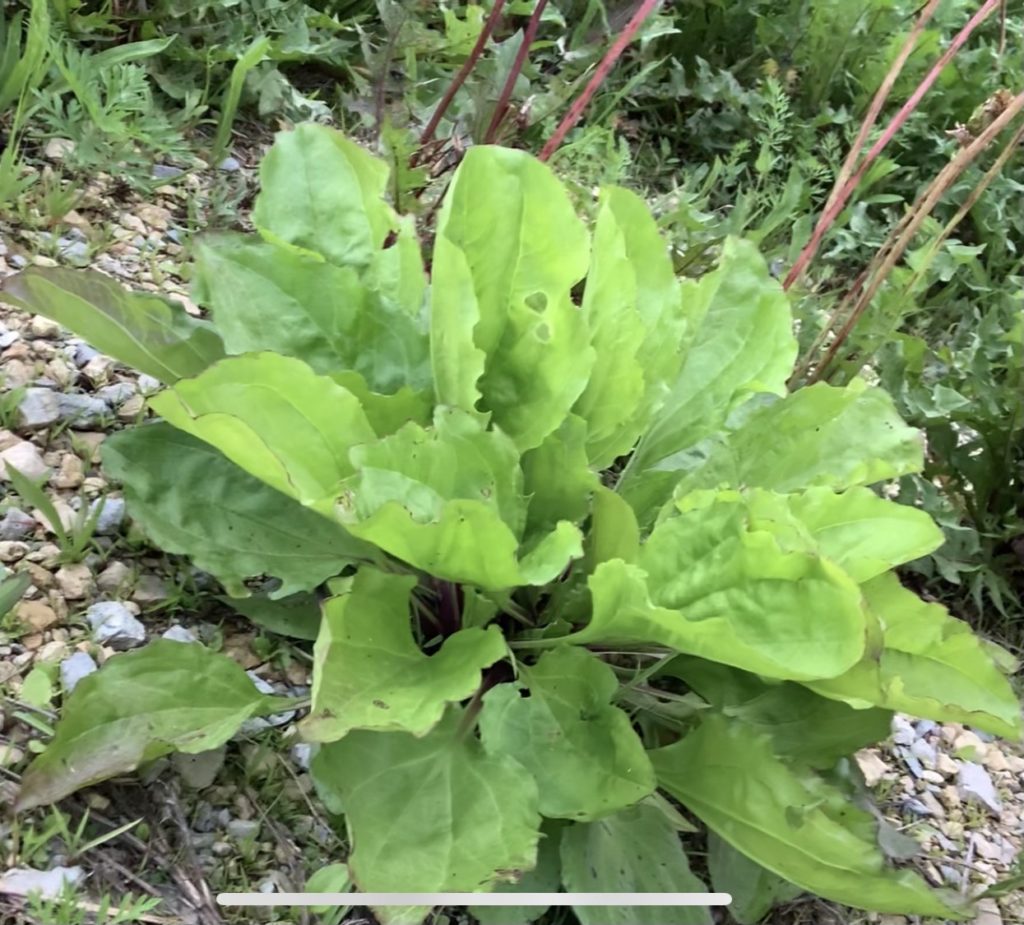Vulneraries: Why You Need To Know Them

Vulneraries are herbs that specialize in cell turnover, especially of epithelial tissue – meaning the linings of our respiratory passages, blood vessels, gut, bladder, and skin.
Why is this aspect important?
Because delayed epithelial cell turnover contributes to an increased risk of developing thicker, clottier blood.
Why is that important in these times?
Because we’re seeing an increase in blood clots after infection, and especially in younger women under 40 on birth control. And as we’ve all heard, it’s making its way around the globe with many asymptomatic infections. This means we’re all turning cells over rapidly to combat (and win) against infection.
Therefore, we need to ramp up cell turnover.
Meet vulneraries! In this series, I’d like to introduce you to 3 vulnerary herbal stars that are easily found, safe to use, and very affordable even if they don’t grow where you live.
The first is Plantain.
This is different than the banana. This is the field “weed” Plantago ovata or Plantago lanceolata.
Plantain can be taken internally to boost cell turnover. A common method is to drink tea of the dried leaves and roots, or as tincture. Typical doses equate to 2 cups of tea or 1/2 tsp of 1:4 tincture.
It can also be used topically to heal wounds, and stop the sting of bee stings and other bug bites. Simply bruise a fresh leaf and lay it upon the affected area. Or if it’s out of season, add a little water to dried plantain and apply the gelatinous mixture to the wound.
If you’re lucky enough to have this “weed” come into your yard, say thank you and leave it be. It doesn’t mind if you take a leaf here and there. 🙂
Happy foraging!
TRANSCRIPT
What we’re needing right now in this time is vulneraries. What’s a vulnerary? It helps tissues heal. Specifically mucosal membranes, skin membranes, and those areas that are being affected by the thing that’s going on right now.
So what we’re seeing is the epithelial tissue, the endothelial meaning inside the blood vessels, the gut tissue, all of these tissues have a common theme in that they heal by a vulnerary action.
I want to introduce you to one of the stars right now in this time and that is Plantain or Plantain if you’re from the South. So here’s my friend right here hanging out. This can be applied topically. If you take one of the leaves and you bruise it you can put it on bee stings, insect stings, any kind of skin wound that isn’t healing.
But you can also take it internally to help all of those mucosal tissues of your respiratory passages, of your blood vessels, of your gut lining, of your bladder lining, heal by turning over the cell. When a virus infects a cell the only way to get rid of that viral-infected cell is to kill off the cell and replace it with a new one. Guess who replaces the new ones? Vulneraries.
This is one of the stars of the show right now in our time and I just wanted to share with you this beautiful plant. It’s available in most places in the United States. This is the oval version. There’s also a more spiky version called Plantago lanceolata. And you can get it in capsules. Take it as a tea. All kinds of ways to use Plantain to help with cell turnover so that you don’t have deal with the clotting issue and you can conquer mold and take back your health.
*This content is health information and not intended as personal medical advice. Viewing will not establish a doctor-patient relationship. It is not intended to diagnose, treat, cure or prevent any disease or medical condition. The information discussed is not intended to replace the advice of your healthcare provider. Reliance on information provided by Dr. Jill Crista, employees, or others appearing at the invitation of Dr. Crista is solely at your own risk.
